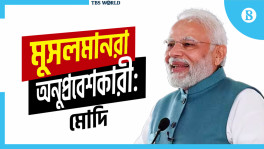Squid Game, Hallyu, and what Bangladesh can learn from South Korea’s cultural export policy
While growing up, we may have been inspired by South Korea’s economic transformation, we may now be more inspired by how this Asian country has established itself as a cultural powerhouse

Starting from early October, the world has been under the hype of one Netflix series- "Squid Game." The South Korean series became Netflix's most-watched show and raked in almost $900 million value for the streaming giant.
Two weeks following the premiere of the show, language learning app Duolingo reported a 76% rise in new users signing up to learn Korean in the UK and 40% in the United States.
And it is not just the Squid Game. Remember Parasite- The 2019 film that went on to become the first non-English movie to receive the Oscars for the best film? What about BTS and Blackpink- the world's biggest boy and girl groups respectively currently?
Albums of their new releases and concert tickets are sold out within minutes and their videos get millions of views faster than those of any Western artists. And who can forget "Gangnam Style"- the first-ever video to hit a billion views on Youtube? The song, with its viral horse-like dance moves, keeps on playing even now.
Korean movies, dramas, and pop music have led to a craze all over the world about South Korea and its culture. It is not just fans buying the latest BTS album or streaming the new season of Crash Landing on You as soon as they are released.

There has been an increase in demand for Korean food, cosmetics, and products due to this craze. Here in Bangladesh, a local conglomerate recently launched Korean Spicy Flavour under its Noodles brand to cater to this craze.
More and more people are also learning Korean. The King Sejong Institute, run by South Korea's culture ministry teaching Korean language and culture started with only 740 students in 2007. Last year it boasted around 76,000 students in 82 countries!
'Hallyu' (meaning 'Korean Wave') is used to describe this craze for anything South Korean. As per the Korean Foundation for International Cultural Exchange, Hallyu generated $12.3 billion in export revenues for South Korea back in 2019.
Another estimate finds BTS contributes 0.5% to the GDP of the country. The numbers may feel paltry considering South Korea's economy is $1.8 trillion but it well shows how culture can become a strong economic force.
While growing up, we may have been inspired by South Korea's economic transformation, we may now be more inspired by how this Asian country has established itself as a cultural powerhouse.
How did government policy enable the Korean wave?
Though there are a lot of factors that contributed to the Korean wave, one that stands out has been government policy. The South Korean Government initiated policies that enabled the start of Hallyu to take over the globe.
In the early 1990s, the Korean government started realising the power of culture. The then-President Kim Young-Sam was shown by his aides how the film Jurassic Park made revenues that surpassed those made by selling 1.5 million Hyundai cars in 1994.
A year later, the South Korean Ministry of Culture set up a cultural industry bureau to develop its media sector, and many investors were encouraged to expand into film and media. This started the Hallyu movement.
But only after the 1997 Asian financial crisis did this wave get bigger. Realising the manufacturing sector, which has fueled the country's economic rise, was not enough, the government started investing more in culture.
It set aside 1% of the national budget for the Culture Ministry. The money was spent on providing subsidies and low-interest loans to set up agencies and establish cultural departments in universities. And in 2002, the Korea Culture and Content Agency was established to promote exports.
These policies paid off. Starting in the early 2000s, Hallyu swept over Japan, China, and Taiwan. The then-Japanese prime minister in 2004 joked that the lead actor of a Korean drama was more popular than him.
By the late 2000s, K-dramas, K-films, and K-pop became the craze in Southeast Asia, Latin America, and even the Middle East. In Iran, Korean dramas achieved viewer ratings of more than 90% and even the Ayatollah praised one of these dramas in a speech in 2009. Finally, with Gangnam Style becoming viral, K-pop, followed by K-movies and K-dramas, made waves in the West in the 2010s.
But government support has not waned even after the rising popularity. The government sponsors concerts, exhibitions, and promotions abroad. Last year, amidst the pandemic, the government allotted a record $5.5 billion for the Ministry of Culture, Sports and Tourism- an increase of 9.4% from 2019. This year, the allocation was $6.07 billion.
What makes South Korea's policies different from others?
Most governments elsewhere also support cultural activities and promotion. What the South Korean government did differently was it supported culture promotion but did not dictate the terms of the promotion.
This noninterference enabled creativity and innovation. Songs, dramas, and films explored new themes and perspectives. Directors, composers, and artists did not hesitate in displaying the complexities of life and criticising the shortcomings of society.
Think about how Parasite and Squid Game focused on the social inequality in Korea. Earlier this year, a Netflix series titled "D.P." (for "Deserter Pursuit") was critical of conscription in the country.
Politicians, instead of asking for the drama to be banned, joined in the conversation. Back in 2016 and 2017, there were protests against the then President Park Geun-Hye.
K-pop songs like "Into the New World," "Bang Bang Bang," and "Cheer Up" became the anthem of these protests. The government did not ban these songs or control their dissemination.
Such non-interference contradicts with policies elsewhere where cultural displays are often controlled by the government. On the other hand, the South Korean government's policy of supporting but not controlling the cultural industry has enabled the rise of content that resonated with the minds of people across geographies. Alongside, interest in Korean products followed. It is no wonder people keep on praising South Korean entertainment.
Lessons for Bangladesh
The lesson for Bangladesh is that we should invest heavily in our culture as well as allow the different media to explore themes critically and from different perspectives. These themes should be celebrated and promoted without censorship.
We already have some world-class filmmakers and films. What we need is more freedom so that they can show movies and series that resonate with people all over the world. The world responded to Korean entertainment as it often depicted issues that mattered to the people but were never talked about. Bangladeshi films, TV series, and music can do the same.
Maybe it is time we learn how South Korea spread Hallyu all across the globe so that we can make cultural exports our country's next engine of growth.
Farhan Uddin Ahmed is a Lead at Youth Policy Forum (YPF). He is currently studying at the Institute of Business Administration (IBA), University of Dhaka.
Disclaimer: The views and opinions expressed in this article are those of the authors and do not necessarily reflect the opinions and views of The Business Standard.


 Keep updated, follow The Business Standard's Google news channel
Keep updated, follow The Business Standard's Google news channel
















